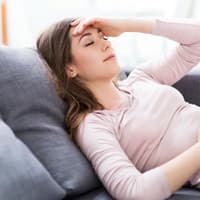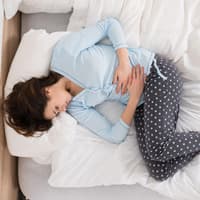
How contraception works
It prevents ovulation and thickens the cervical mucus so that sperm cannot penetrate. During the one-week break, the hormone level drops and bleeding starts.
After stopping the pill, the natural cycle returns
If the pill is stopped and the hormones are suddenly absent, the body restores its natural cycle. Egg follicles mature in the ovary and the uterine lining builds up. After about 14 days, ovulation occurs: a follicle in the fallopian tubes bursts and the released egg travels to the uterus. If the egg is not fertilized, the top layer of the mucous membrane peels off and menstruation begins to expel the mucous membrane and egg.
Discontinue the pill: Side effects such as mood swings
Without the pill, the cycle becomes more irregular, bleeding becomes heavier and sometimes more painful - just like before taking the pill. There may also be problems with the skin and hair: Some women complain of spots after stopping the pill or hair loss. Mood swings can also occur, with some women feeling more irritable, depressed or restless than before.
Stopping the pill: You may miss your period
You can stop taking the pill at any time. It usually takes a few weeks for the natural cycle to settle down. There may also be intermenstrual bleeding or you may miss your period, but this is no cause for concern.
The side effects of the pill disappear quickly
You can become pregnant immediately after stopping the pill. You should therefore use alternative contraception. And: Side effects of the pill also disappear very quickly when you stop taking the hormones.






